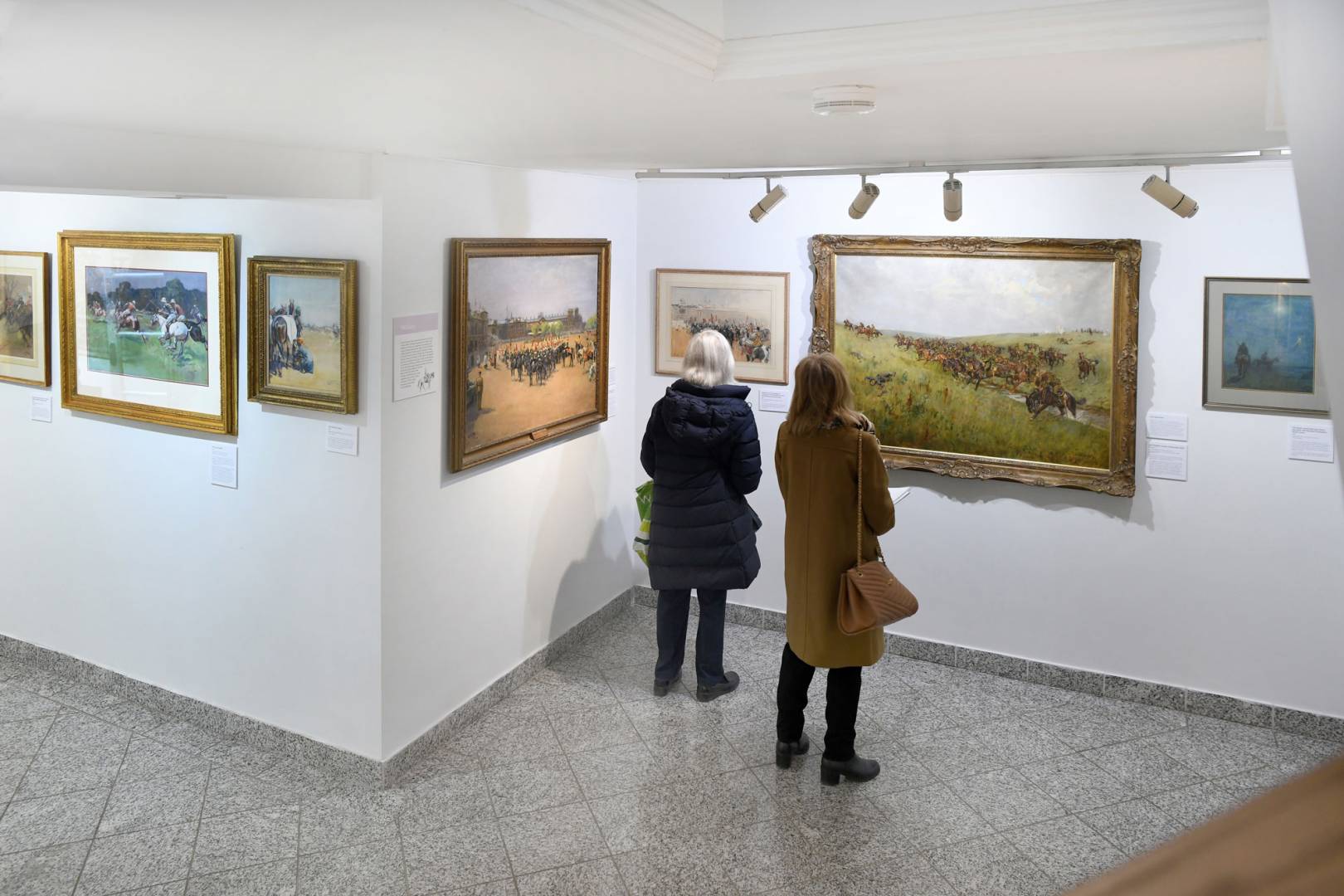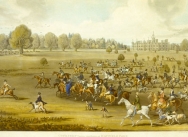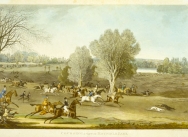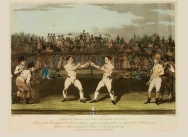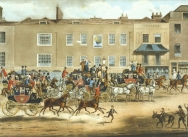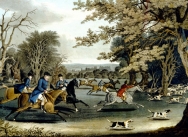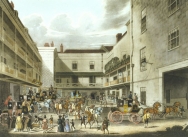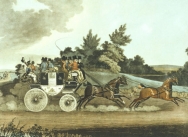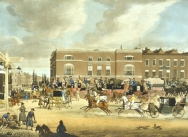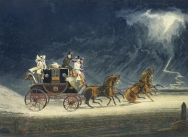A to Z of artists Pollard, James
James Pollard was born at Islington, London in 1792, the youngest of the children of Robert and Ann Pollard. Robert Pollard had come to London from Newcastle in 1774, when aged nineteen, and by 1781 had established himself as an engraver and publisher at 15 Braynes Row, Spa Fields, Islington. Robert intended his son to be a painter, writing to his friend Thomas Bewick in 1807 how he would like Bewick to see his son’s pictures after the work of Ben Marshall (q.v.). James made progress while also learning to etch and, with his brother William, assisted his father in his business. However, in 1816, James Pollard turned almost exclusively to engraving and from then until the late 1820s undertook over one hundred plates after his own and mainly other artists’ work. In 1821, James was commissioned to paint a sign showing a mail coach, horses and passengers for an inn on the London to Norwich road. Ordered through the King’s Print Seller, Edward Orme, he temporarily displayed it in the window of his Bond Street shop. The picture was much admired leading to Pollard being commissioned to make four copies on canvas, each with slight variations. Encouraged, James Pollard sent a large picture of The North Country Mails at the Peacock, Islington to the Royal Academy in the same year. It was accepted, admired, and further commissions for similar paintings were soon forthcoming. Pollard now devoted nearly all his time to painting his inimitable coaching scenes. Marrying in 1825 and moving to his own home at Islington Green, he added racing, steeplechasing, shooting and fishing subjects to his repertoire during the 1830s. A remarkable 340 prints were published after his oils and watercolours, of which he engraved almost half himself. He exhibited only five pictures at the Royal Academy, and seven elsewhere. The death of James’s wife and youngest daughter in 1840 was a severe blow from which he never completely recovered. Painting little and only occasionally making a fishing excursion to his favourite River Lea, he had to call upon the Artists’ Benevolent Institution for help in 1859. Ironically his father had been a founder member of the Institution, and had also to call on its charity shortly before he died in 1838. James finally went to live with his son, James Robert, and died at his home in what is now Sydney Street, Chelsea on 15 October 1867.
Other works of art you may be interested in
From the library
| Shelf No Year |
Title Author |
Publisher Notes |
|---|---|---|
| E.Pol. 5 |
Pollard, James |
|
| E.Pol. 5a |
Pollard, James |
Sotheby & Co. |
| E.Pol. 1b |
Pollard, James Selway, N. C. |
Faber and Faber, London |
| E.Pol. 2 |
Pollard, James Selway, N. C. |
F. Lewis, Leigh-on-Sea |
| E.Pol. 3 |
Pollard, James, 1792-1867 Selway, N. C. |
F.Lewis |
| E.Pol. 4 |
Pollard, James Selway, N. C. |
Copyright © 2024 BSAT, All rights reserved
This website uses cookies and similar technologies to give you the very best user experience, including to personalise advertising and content. By clicking 'Accept', you accept all cookies.


